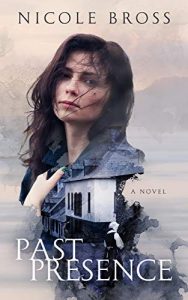When Your Brain is the Enemy: Life as a Writer with ADHD
 Writing and publishing a novel is an accomplishment few achieve, and those who do know how much work it is to make it to ‘the end.’ Countless hours of inspiration, plotting, writing, editing, re-editing, pulling one’s hair out, self-doubt, critique, and finally—finally—something ready to send out into the world.
Writing and publishing a novel is an accomplishment few achieve, and those who do know how much work it is to make it to ‘the end.’ Countless hours of inspiration, plotting, writing, editing, re-editing, pulling one’s hair out, self-doubt, critique, and finally—finally—something ready to send out into the world.
Now imagine doing all that when your brain is actively trying to sabotage you every way it can. That’s what it’s like trying to be a writer when you have ADHD.
When most people think of Attention Deficit Hyperactivity Disorder, they imagine a little boy who can’t sit still at his desk, a kid who’s disruptive and loud. The truth isn’t quite so simple, especially for women, who often fail to be diagnosed in childhood because their symptoms present differently. For a lot of girls and women, having ADHD means they’re easily distractable, suffer from lack of focus, procrastinate or have problems with short-term memory or deviations from routine. A girl with ADHD may not be bouncing around in her seat in class, but she may be staring out the window, daydreaming stories in her head, or getting so pulled into a book she loses track of reality and doesn’t hear people when they’re speaking to her.
This difference in symptoms was why I wasn’t diagnosed until I was 38 years old. Because I also have anxiety, I was always able to keep my life sort-of together, but the refrain in my head was one of constant beratement, belittling self-talk and comparing myself with others who seemed to be able to perform their day-to-day tasks without effort. Meanwhile, I’d forgotten to do the laundry four days in a row, somehow skipped brushing my teeth and was behind on all my work deadlines.
Writing was a near-impossible task. It would take me an hour or more to actually start typing out words after my writing time, so rare to begin with, began. Between the time I opened my laptop (where even is my laptop, anyway?) and when I actually started putting down words, I’d somehow fall into a hole of checking email, social media, watching videos, skimming news articles and doing ‘research’ (actually reading random Wikipedia articles).
The entire time this was going on, I’d be mentally criticizing myself for not using that time to write, which would bring my mood even lower, but I literally could not start writing until I’d exhausted all those other distractions. I began to relate writing to that feeling of negativity and it became even harder to want to do it at all. It’s exhausting to think so poorly about yourself all the time.
A diagnosis didn’t fix any of those issues on its own, but it did help with the self-blame and negative attitudes. Realizing that my brain’s makeup was what was holding me back and I wasn’t just lazy or lacked ambition was so freeing. I can be gentle with myself now and show myself the kindness I’d automatically offer anyone else if they were in my shoes.
Knowing that my brain works a little differently and has specific challenges I can learn to work with has given me a deeper understanding of who I am and what I need to succeed. Now I work with a medical team to develop skills and techniques that can counteract my distractability and forgetfulness. Basically, I’m learning to hack my brain. Pretty cool, right?
Checklists have become my new best friend. Now, every time I want to write, I run through a list in my head before I start: Find and log into laptop—open work in progress doc—check outline—start writing. Reciting this list to myself and then following it eliminates all the distractions like email and the latest headlines. While a neurotypical person might do this subconsciously and naturally, an ADHD brain needs the reminder to act with intention.
Medication has been a more recent factor in my treatment, and while I was skeptical I would benefit from it, the evidence in my tracking spreadsheet is clear: in the months before meds, I was averaging 5,000 to 10,000 words written per month. Afterward? Over 25,000 words a month, with twice as many days spent writing overall.
Managing ADHD is an ongoing process, and it’s definitely not as easy as taking a pill and watching everything fall into place. There are always going to be things I have to work harder at, like short-term memory retention and procrastination (this article, for example, was started four days before its due date, even though I’ve known about it for over a month) but a daily planner, phone reminders and to-do lists help with that. I’ve even been able to see advantages to my neurodiversity—I signed the publication contract for my debut novel, Past Presence, thanks to a Twitter pitch event called #DVPit for diverse or marginalized writers, and in the novel I’m currently working on, I’ve been able to use my experiences with ADHD to give the same trait to my main character. ADHD has also been linked to increased creativity which means it’s possible I can thank it for my success as a writer in the first place!
I’m not sure I’m ready to say I’m glad I have ADHD, but I’m glad I know I do. There’s so much power in knowledge, and my life is definitely better for my diagnosis. My goal is to continue to leverage the advantages while working on improving the challenges. I think if I do that, I have a bright future and writing career ahead of me.
—
Nicole Bross is an author from Calgary, Alberta, Canada, where she lives with her husband, two children and one very large orange cat. When she’s not writing or working as the editor-in-chief of Birthing Magazine, she can be found curled up with a book, messing around with her ever-expanding collection of manual typewriters or in the departures lounge of the airport at the beginning of another adventure. Past Presence is her debut novel.
 Only by looking into the past can Audrey save her future.
Only by looking into the past can Audrey save her future.Audrey Eames is happy living the wanderer’s life. After a near-death experience in her teens, Audrey can see people’s past lives whenever her skin touches theirs, and afraid of being labeled delusional, she’s never stayed in one place too long or made any deep connections.
So, when Audrey’s estranged aunt dies and leaves her the historic Soberly Inn and Public House on the scenic Oregon coast, Audrey wants nothing to do with it. She is determined to sell the inn and leave town before someone discovers the power she’s been hiding from the world, but clauses in her aunt’s will seem to block her at every turn.
Yet once ensconced in Soberly’s small town life, the people–particularly the bartender, Kellen Greene–start to grow on her, and she begins to feel that maybe she’s finally found a place of her own. As accepting as the townspeople seem, Audrey fears their reactions–and Kellen’s rejection–and decides to keep her visions a secret. But all is not well in Soberly. Soon after Audrey arrives, people in town start dying in the same manner as in their past lives–but in this lifetime it’s murder. When suspicion starts to fall on Audrey and her new beau Kellen, Audrey vows to use her gift to find the murderer and protect the people she loves–before it’s too late.
Category: Contemporary Women Writers, How To and Tips

























Thanks for this! Also, your book sounds awesome. I’d read it and wait for the tv show to come out, too! (While avoiding my laundry).
Take care. 🙂
Thank you so much for this article! I have struggled to get any long-form fiction off the ground for years. Recently I learned of my ADHD and that, of course, it affects how I write or struggle to write. I’ve finally ditched a lot of unhelpful-to-me writing advice and am slowly discovering what does work for me. I one-clicked your novel and am looking forward to reading it!
Cheers from New Zealand
Rebecca E
I appreciate this article so much! I’ve been trying to write books for more than 20 years and have just discovered that I most likely have ADHD. I am going to go get tested, but this gives me hope. I’ve written thousands of articles and marketing pieces. You know … much shorter projects. But sitting down to write a book is exactly as you described. While ADHD gives us the creativity, it also gives us some obstacles. I hope to be able to find a system that helps me battle through to finishing my first book. Thank you for sharing your experience.
Thank you! This explains a lot.
Thank you for sharing this – I’m on a similar journey and relate to your words of negative self-talk and shame when thinking about writing. I’m worried about medication robbing me of my creativity, despite providing me with much needed focus! Would love to know more about your experience of creative writing with ADHD medication
Thank you for this💗It was a revelation for me.
Thank you so much for this article, Nicole. A couple of weeks ago I heard something that made me wonder whether I had ADHD but when I looked it up, I couldn’t see much at all that described me – it was all much more like the little boy you mention. But your experiences of writing so echoed my own I nearly wept. I am now in my late sixties and have managed to complete a full-length book and a PhD but not without enormous struggle. I am writing currently writing historical espionage novel but it has now drawn out over several years and I feel as if I am trying to wrangle with both it and myself everyday. My self diagnosis has always been one of self-sabotage, and the subsequent self-talk – Just get over it – that solves nothing. So many thanks. Even if I can’t do anything about it, your openness with your own experience will make it possible for me to at least unload the shame and sometimes despair. I don’t mind working twice as hard, but I do mind never seeming to make any headway.
Great article, Nicole! I know two women who believe they made have ADHD and it explains a lot. I’ll pass this on. And congratulations on the book!